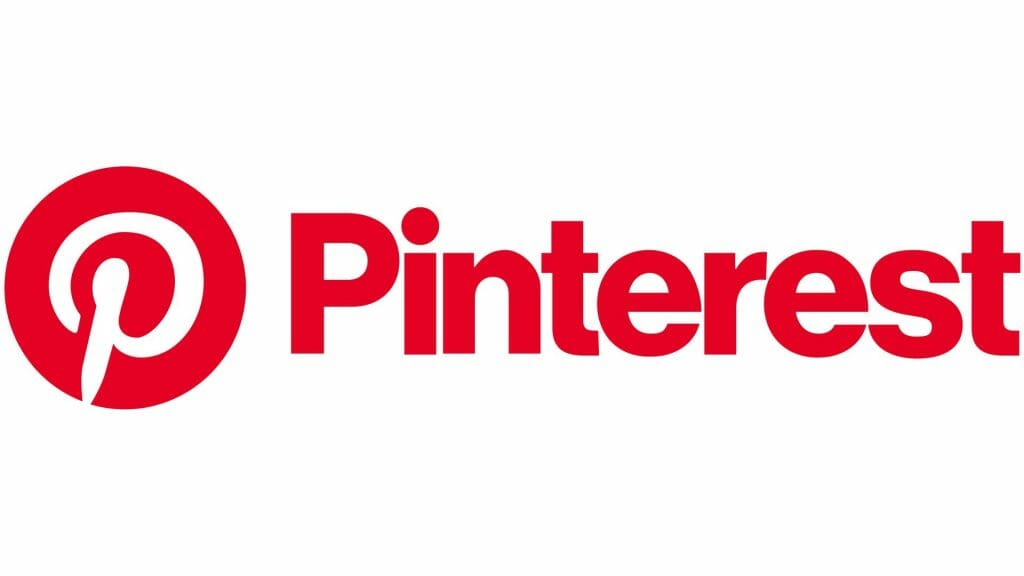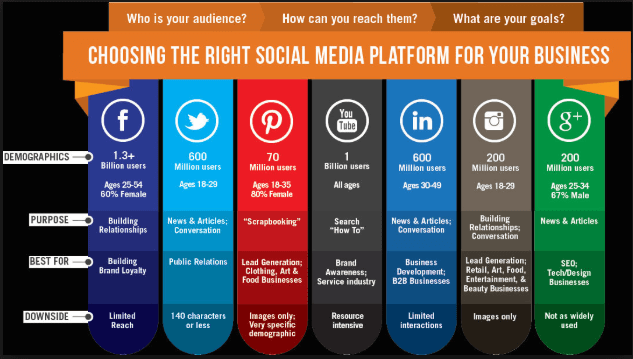In today’s digital age, social media has become an essential tool for businesses of all sizes and an integral part of digital marketing. If you are looking for an effective way to drive traffic to your company or organization and increase brand awareness and engage directly with your target audience then you will want to create a social media account or multiple accounts as a part of your marketing campaigns.
For small businesses, in particular, social media marketing offers an affordable way to compete against large corporations. However, with so many social networks and strategies available, it can be challenging for small business owners to decide which media outlets to focus on. This is especially true in those competitive markets like here in Southern California.
So how do you determine which social media channels and tactics will yield the best results? The answer to this is not a one size fits all. Not all businesses are the same and they don’t function in the same way. And in the same light not all social media outlets are the same meaning social media marketing on each channel wont be the same either.
Effective social media marketing takes work. And the worst experience, especially for a business, is to put in a lot of time and effort into something that doesn’t pan out. The best way to avoid this is by understanding which platforms are best suited for your business. Be it facebook, instagram, twitter, or tiktok each provides a unique experience for their audience and a different angle to add to your social media marketing.
This blog post aims to guide small business owners in choosing the right social media platforms and strategies to develop an effective social media marketing plan that can maximize your online presence and achieve your marketing goals. Every platform isn’t necessary for your business, but with the right understanding you can save yourself a lot of headache. But in the end if you decide to hire a social media management agency this guide will help you to have a well informed conversation with potential agencies.

Understanding Your Target Audience and Competition
Before diving into the various social media platforms, it’s crucial to identify and understand your target audience. Effective social media marketing will always start with the customer. Knowing your ideal customer profile will help you select the media channels they are most likely to use and tailor your social content to resonate with your interests and needs.
Start by analyzing your existing customer base and identifying common demographics, interests, and online behaviors. Consider factors such as age, gender, location, income level, and hobbies. Also pay attention to yearly events they may be interested in, this is particularly helpful in developing your own content calendar. There are a lot of marketing strategies but they all should start with some research on your ideal customer. This will not only help you choose the right social networks but also inform your overall social media marketing strategy.
A competitive analysis is integral to any social media marketing strategy. A great way to make sure you are choosing the right social channels is to see where you competitors currently have a presence. Look at how your audience engages with them. What sort of social media content are they putting out. Not to duplicate, but to analyze and see what you can do better.
Analyzing your competitors social media may reveal some current trends that you can take advantage of. We are not a fans of taking advantage or trends just for the sake of being trendy, that rarely fits into our clients goals and they don’t fit our goals either. But trends can provide creative ways to create quality content and drive value to your customers.
Overview of Popular Social Media Platforms
There are numerous social media platforms available, each with their own unique features and user demographics. Let’s take a closer look at some of the most popular social media platforms and how they can benefit your small business:

As the largest social media platform, Facebook offers broad reach and diverse audience demographics. It is an excellent choice for businesses looking to target a wide range of potential customers.
Pros:
- Extensive user base
- Robust targeting options for ads
- Very well established and lots of free tools
Cons:
- Organic reach has declined in recent years
- Can be time-consuming and difficult to manage and maintain
- Many businesses have had issues using Facebook Ads
Content and strategies:
- Brand Awareness Strategy: Consistently share a mix of promotional, educational, and entertaining content. Do this while engaging with as many customers as possible.
- Paid Strategy: Utilize Facebook Ads to reach your target audience. Utilize their robust tools to be very targeted in your ads and make ads geared towards a specific audience.
- Improved Customer Service: Utilize Facebook’s massive reach as an extension of your customer service. Engage with followers through comments and messages getting feedback on their experience.

Instagram is a visually-driven outlet popular among younger audiences. It’s ideal for businesses that can showcase their products or services through eye-catching images and short videos.
Pros:
- Highly visual outlet
- Strong engagement rates
- Access to Instagram Stories and shopping features
Cons:
- Requires a lot of high-quality visuals
- Limited to mobile devices
- Harder to grow new accounts
Content and strategies:
- Engagement Focus: There are a lot of brands who do not interact effectively with their audience. Our clients have had great success by creating a direct connection with customers here.
- Trending Strategy: Instagram is effective in utilizing trending audio that give leeway for your own creative style increasing exposure.
- Collaboration Strategy: Find influencers or advocates in your niche and utilize collaboration tools.

Twitter is a fast-paced social network that allows users to share short updates and engage in real-time conversations. It’s an excellent choice for businesses looking to establish themselves as thought leaders and stay up-to-date with industry trends.
Pros:
- Excellent for promoting products and services with links.
- Ability to participate in trending topics and discussions
- Opportunity to connect with influencers and industry leaders
Cons:
- Limited character count
- Can be time-consuming to maintain an active presence
Content and strategies:
- Update Strategy: If your brand has a lot of events or consistent new releases you can use twitter to stay engaged with an audience and drive customers to your brand.
- Conversational Strategy: Use this social media to answer common questions and engage with followers to participate in helpful conversations.
- Paid Strategy: Many brands neglect twitter ads, which may make this a cost effective strategy for you. Twitter has a long history providing a great opportunity to grow.

LinkedIn is a professional networking platform focused on B2B interactions, making it ideal for small companies offering services or products to other businesses.
Pros:
- Professional user base
- Opportunities for networking and partnership building
- LinkedIn Pulse for sharing long-form content
Cons:
- Less suited for B2C businesses
- Lower engagement rates compared to other media outlets
- Increased amount of spam messages
Content and strategies:
- Industry Insider: Share industry insights, company updates, and thought leadership articles to highlight your expertise.
- Strategic Partnership Strategy: Connect with potential clients and partners in a place where they are already networking.
- Group Leader Focus: Find groups that compliment your industry, join and add value through conversation.

Pinterest is a visual search engine popular among users looking for inspiration, ideas, and DIY projects. It’s an excellent channel for businesses with visually appealing products or those offering creative solutions.
Pros:
- High purchase intent among users
- Long-lasting content visibility
- Drives website traffic
Cons:
- Requires high-quality visuals
- Primarily female user base, which may not suit all businesses
- Requires a high amount of graphic design which may be costly
Content and strategies:
- Education Strategy: Create visually appealing pins that educate and link to your website or blog.
- Resource Strategy: Utilize visuals as a resource for your customers that can compliment your products or services increasing engagement or value.
- Collaborative Strategy: Collaborate with popular pinners in your niche or industry to provide more complete content.

TikTok
TikTok is a short-form video outlet that has exploded in popularity, particularly among Gen Z and younger Millennials. It’s an excellent choice for businesses looking to reach younger audiences through creative and entertaining content.
Pros:
- Rapidly growing user base
- High engagement rates
- High opportunity for growth and exposure
Cons:
- Requires creative video production skills
- Demographic may not align with all businesses’ social media goals
- May require more effort to build enough videos for your content calendar
Content and strategies:
- Create short, engaging videos showcasing your products or services
- Participate in trending challenges and use popular hashtags
- Collaborate with TikTok influencers in your niche

Tips for Choosing the Right Channels for Your Small Business
When selecting which media outlets to focus on, consider the following factors:
- Align platform features with your business and marketing goals: Choose channels that offer features and demographics that align with your target audience and marketing objectives.
- Consider your available resources and time commitment: Select platforms that you can effectively manage and maintain based on your team’s skills and available time. Or locate a social media management company that fits your needs and budget.
- Evaluate the competition and opportunities for growth: Research your competitors’ presence on each platform and identify areas where you can differentiate yourself and excel.
- Evaluate the social media analytics each outlet provides: Make sure the platform offers insights and metrics to measure your performance and optimize your media content.
Developing a Social Media Marketing Strategy
Once you’ve chosen your outlets, it’s time to develop a comprehensive social media strategy. This should include:
1. Setting clear objectives and KPIs: Establish measurable goals for your social media efforts, such as increasing brand awareness, driving website traffic, or generating sales.
2. Creating a content plan and posting schedule: Develop a diverse mix of content that appeals to your target audience and maintains a consistent posting frequency.
3. Promoting engagement through interaction and responsiveness: Encourage conversations and respond to comments and messages promptly to build relationships with your audience.
4. Utilizing platform-specific tools for growth: Take advantage of advertising, analytics, and other tools offered by each platform to optimize your social media marketing strategy and achieve your goals.
Effective Social Media Marketing Strategies from Our Past Clients
Improved Operations
There is always some operational obstacle to overcome. One client of ours had issues with far too many phone calls all asking the same questions. They wanted more business but wouldn’t be able to handle it due to the sheer number of phone calls they received that slowed down their operation. So a primary goal of their social media marketing was to free up their operations by using social media to reduce phone calls.
We created an FAQ page on their website as well as a strong presence on the popular social media channels, such as Facebook and Instagram. By answering common questions right away, we informed customers quickly without them having to wait for a phone call or email response. This also streamlined a lot of the business communication and led to a string of referrals that they had a new capacity for. This allowed them to increase the amount of business they were able to handle with the same amount of employees.
Education Focus
Marketing social media content doesn’t always have to be about entertainment. Sometimes the best social media marketing involved an educational focus. For this particular client of ours providing an increased content strategy focused on educating customers about their products and the new innovations increased the confidence people had in their brand.
Sometimes you have to take a victory lap and brag about the effort you put into your work. And for this company it paid off well. They released a new product line and prior to launch released a lot of informative content. Due to the numerous pictures and videos informing their customers on the difference between their product and what else was out there clients felt safe spending money with them, revenue increased, and returns were non existent.
Inspire and Engage
One client of ours had the strength of public speaking and charisma. So when it came time to expand their business the clear strategy was to leverage inspiration and a personal touch in his social media marketing. Their business model focused a lot on the future so inspiration became a focal point for their social media. This allowed their customers to see the possibility their services provided. They had been inspired to do more and naturally their services came to the forefront of their customers minds.
When potential customers know like and trust you they are far more likely to support your business. Social media is a great way to build that opportunity with customers. This particular client provided content that filled their customers with hope and guided them towards a plan of action. Those action steps naturally led their way, even if their content didn’t explicitly say so.
Conclusion
Choosing the right social media platforms and strategies is crucial for small business owners looking to maximize their online presence and achieve their marketing goals. By understanding your target audience, selecting appropriate platforms, and developing a comprehensive social media marketing strategy, you can set your business up for success on social media.
Which social media works best for your business depends a lot on what your goals are. In general, however, a successful social media marketing strategy should include some combination of inspiration and engagement tactics to build relationships with potential customers and keep them coming back for more. Additionally, providing helpful educational content will also enable you to establish yourself as an authority in the industry and increase customer trust.
Finally, by streamlining your customer service and operations using social media, you can free up valuable resources that can be used to grow your business. With a comprehensive social media marketing strategy in place, you’ll be able to take advantage of the many benefits that social media has to offer for your business. If you do this effectively the ROI will be tremendous.As a Southern California marketing agency, we’re here to provide tailored guidance and support to help your small business thrive in the competitive landscape. Social Media Marketing is not everyone’s specialty. But that doesn’t mean you can’t learn about what it takes to develop an effective social media marketing plan. Even if you hire out this job you will have a better understanding of what it takes to drive results. And that will always make you a better business owner.








